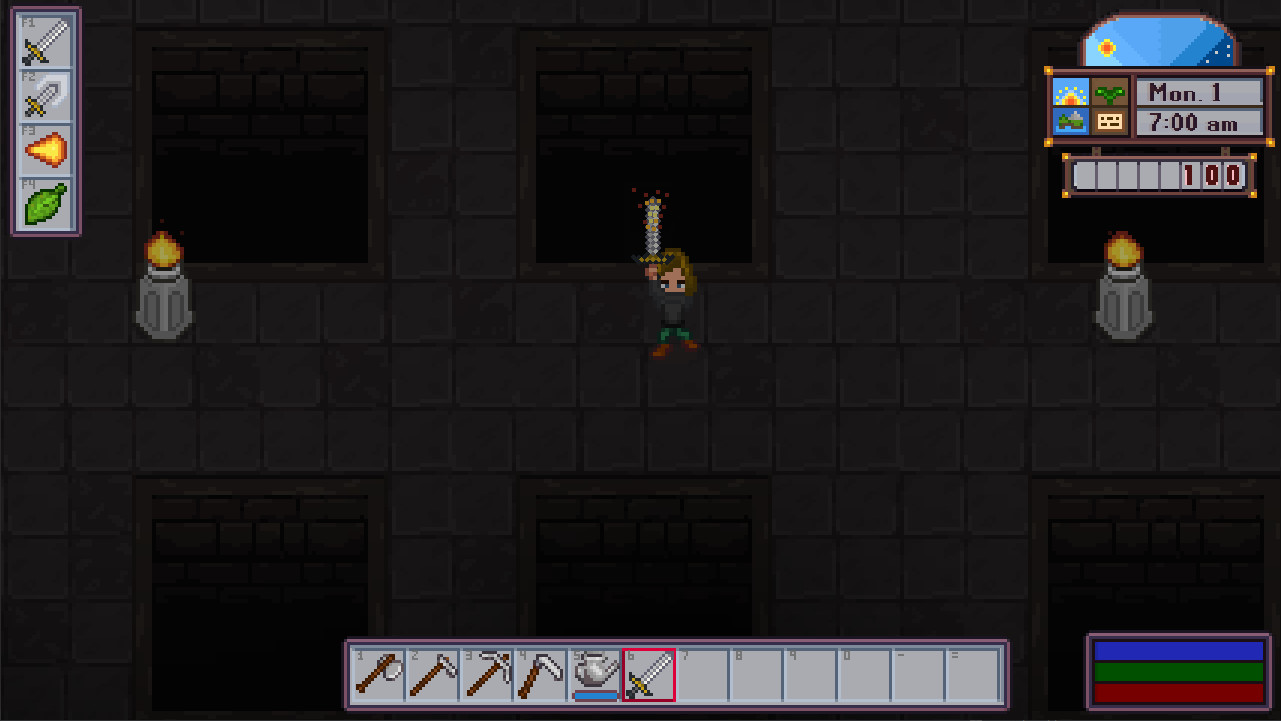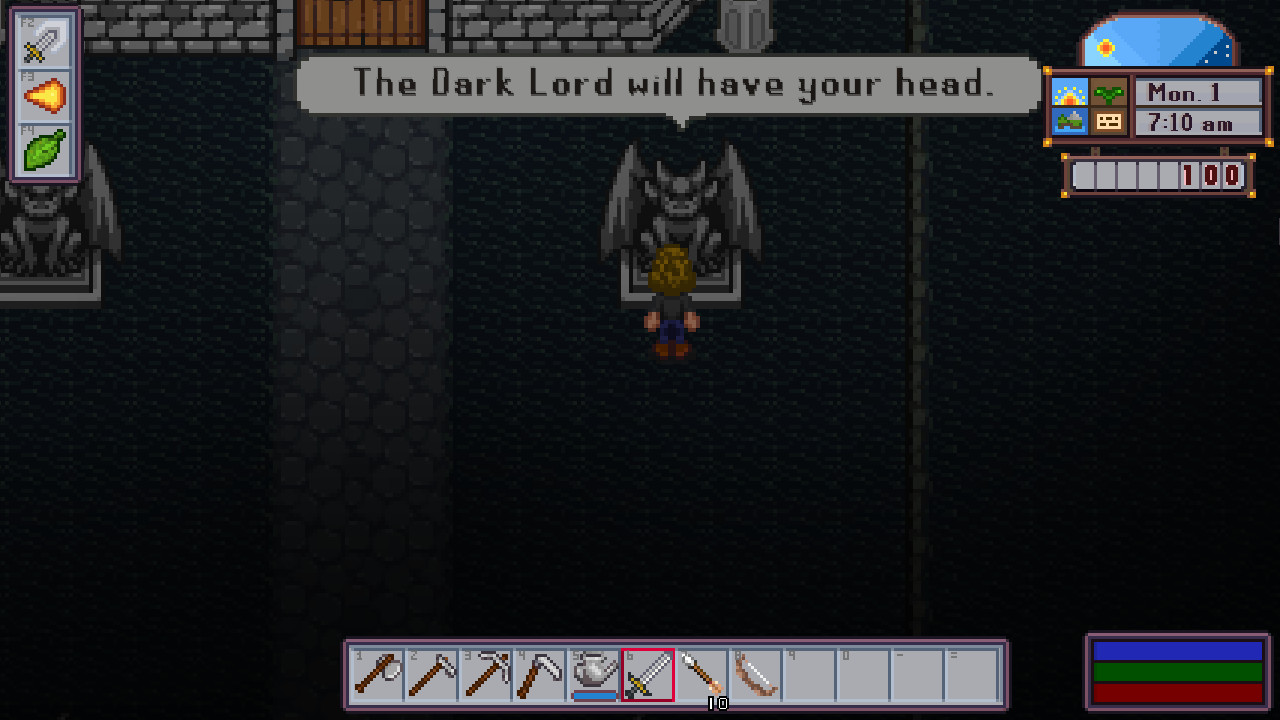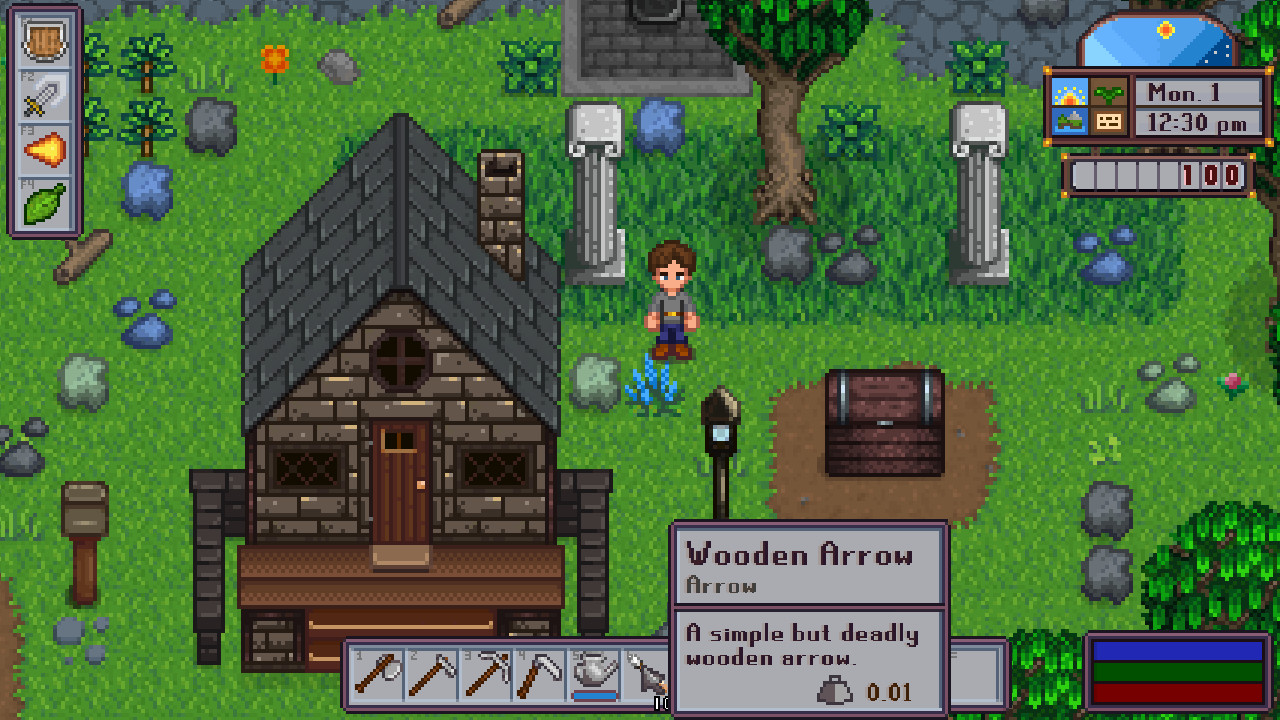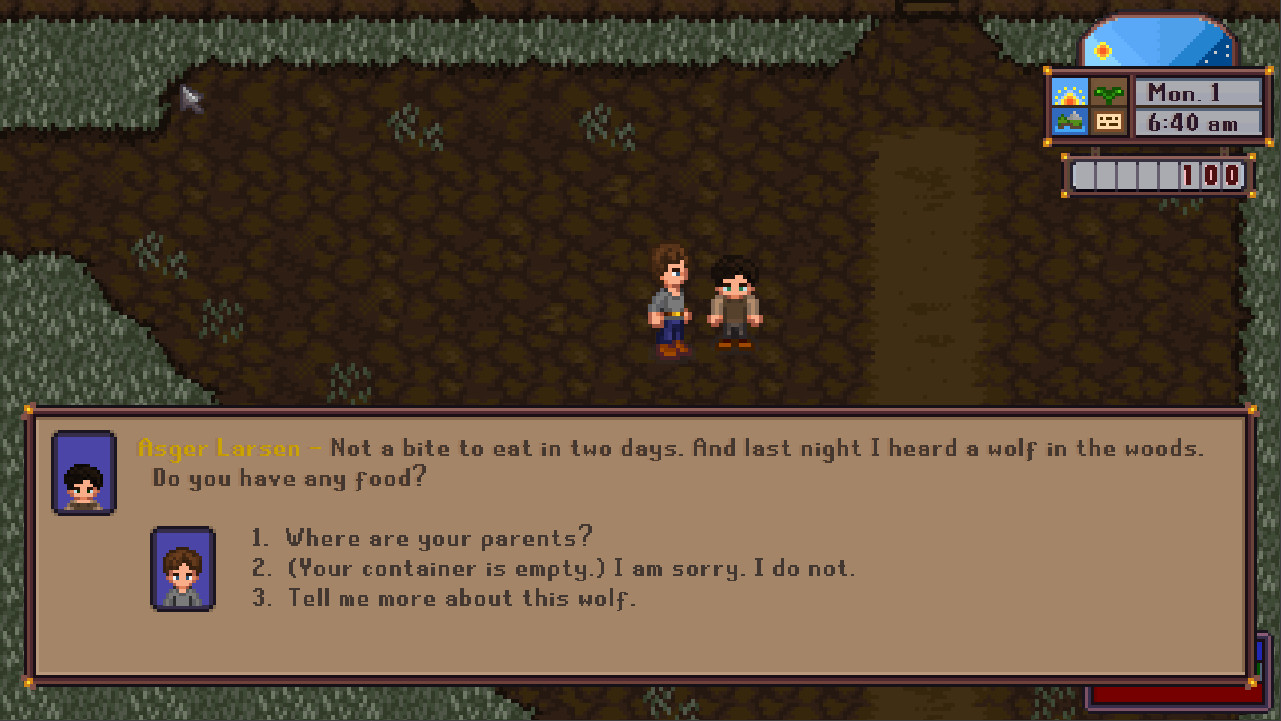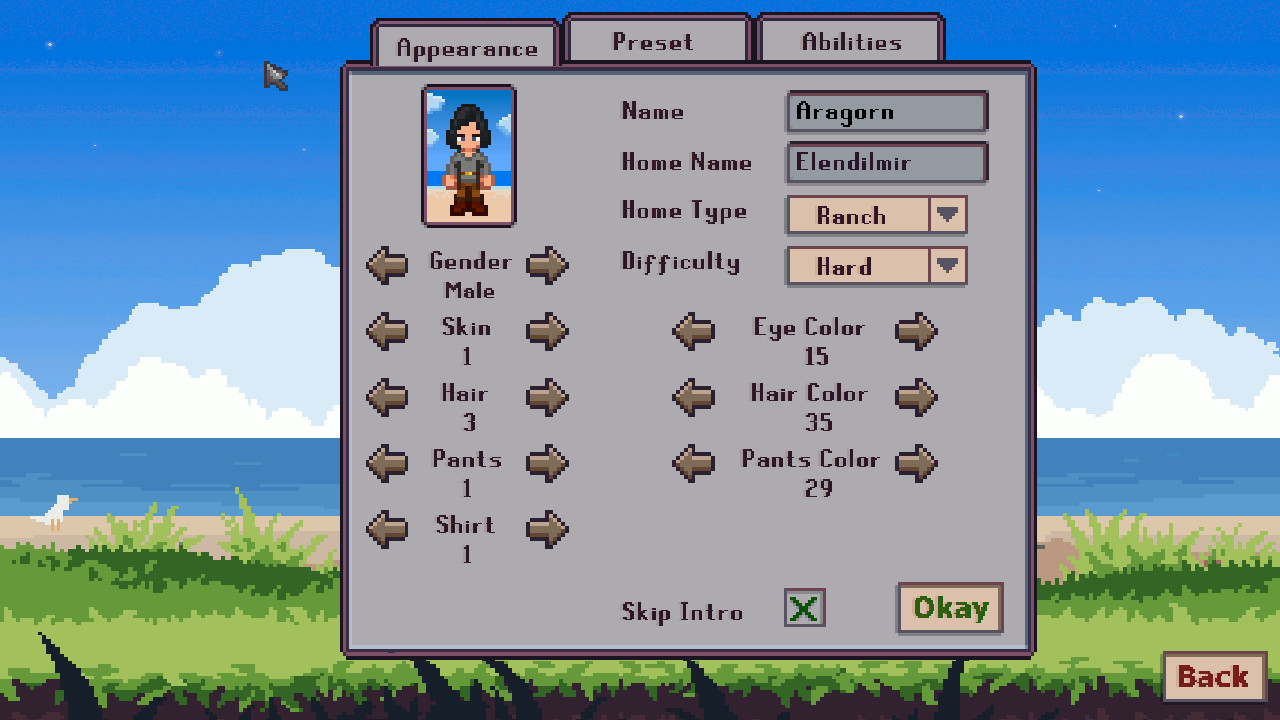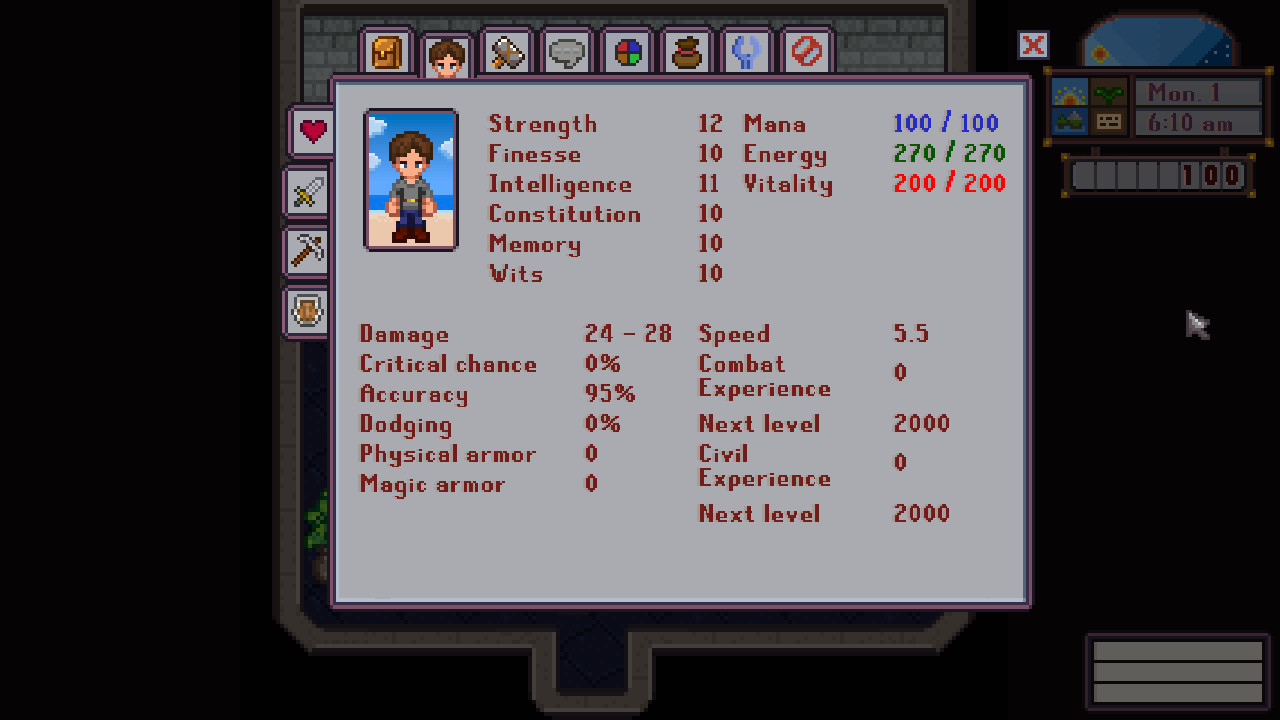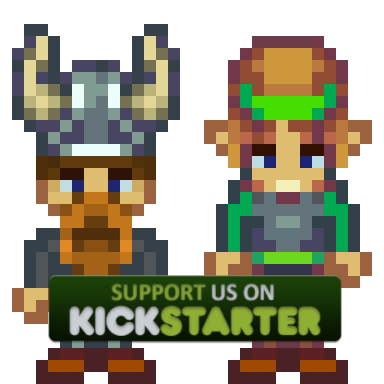 Click here for the Kickstarter Preview
Click here for the Kickstarter Preview
You wash ashore on The Isle of Elanor, the last bastion of humanity remaining in the world. You retain only fragments of your memory – your origins are a mystery. The people of the isle are puzzled by your inexplicable arrival.
The situation on the island is grim: many people are poor, destitute, and in some cases close to starving. There's social strife and division. You're given a small plot of land. Can you help humanity survive?
- At the highest difficulty level, the game is meant to be challenging. If you're not careful, you will starve.
- Select skills and attributes to determine your build: a tank, melee fighter, or a ranged attacker? Or choose a build that doesn't specialize in combat.
- The Isle of Elanor is a game about player choice. What type of home to build? Who to befriend or who to make an enemy of?
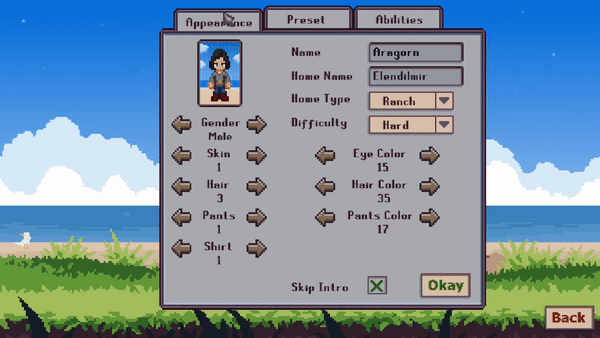
- Set in an imaginary period of the Earth's past, it's a world that borrows elements from both Midgard and Middle Earth. The peoples of Middle Earth (humans, elves, dwarves, orcs, etc) appear in the game.
- Complex combat mechanics featuring single-handed (quick) and two-handed (long-range) basic attacks, skills (magic), and the use of a shield.
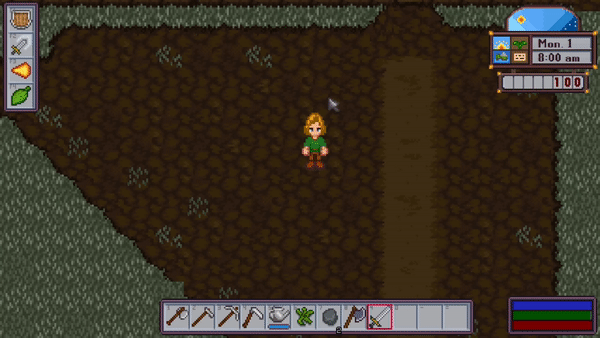
- Build workshops near your home and hire townspeople. This is more than a farming, fishing, and mining game. In fact, your home isn't necessarily a farm. You can create an industrial center where you manufacture pottery, or craft weapons and armor.
- Hire townspeople to perform the mundane tasks of watering and harvesting your crops.
- Become a part of the community. Give food, items, and jobs to needy townspeople. Watch the townspeople prosper, or decline, along with the home you build. You will face the consequences of your actions.
- Deep branching dialog options. Learn about the people and the history of the island.
- Features a realistic geology model. Stone occurs in sedimentary, igneous, and metamorphic layers. Some types of stone, ore, and jewels are available to mine only in certain layers.

- Just a few of the types of stone: Bauxite, Cobalite, Granite, Gypsum, and Olivine. When you craft an item out of stone, the item retains the properties (color, weight, value) from the stone. The same mechanic applies to items crafted from wood.
- Factional alliances. The non-player characters on the island are grouped into factions. Most NPCs have families. Your relationship with one family member affects your relationship with the other family members. There are multiple towns in the game which also form factions.
- The Isle of Elanor can be played as a management game, akin to Dwarf Fortress, where you juggle the complexity of managing your employees and selecting Industries to specialize in.
- The townspeople of the island change over the course of game. Their appearance, happiness, needs, and skills evolve as the island changes. The townspeople have crafting skill levels that improve over time. Townspeople change their clothing based on the seasons and their financial wellbeing.
- The pricing of items in the game changes over time. There is a supply and demand mechanic. The more that you sell of an item, the less it is worth.
- Features an extensive main plot line that occurs over three chapters, all recorded in your journal.
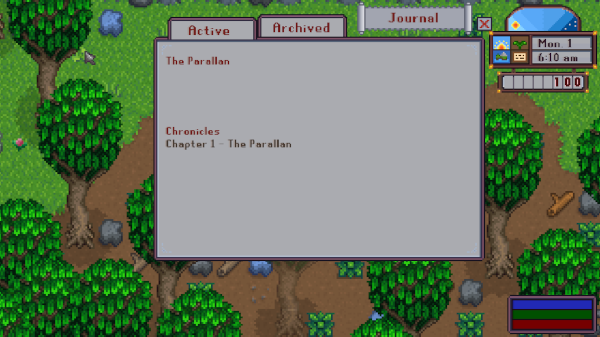
- The guiding principle behind the quest system is consequences. Quests result in small changes here and there to show how the world is changed – for better or worse.
- Added Recipes. Some items, typically machines, like the Anvil and Kiln must first be purchased from NPCs as recipes. The items are then craftable by the player.
- Improved AI combat behavior and pathfinding. Slimes now jump over rocks. Slimes also make more intelligent choices on when to perform a ranged attack. This work is in preparation for adding more monster types.
- Began changing the look and feel of each village. Added statues and fountains. Eventually, most objects such as fountains and statues can be interacted with by the player.
- Reduced likelihood of goats spawning on maps. Other objects spawn in place of goats.
Minimum Setup
- OS: Ubuntu
- Processor: 2 GhzMemory: 2 GB RAM
- Memory: 2 GB RAM
- Graphics: 256 mb video memory
- Storage: 100 MB available space
[ 6433 ]
[ 7165 ]
[ 3708 ]
[ 5362 ]

